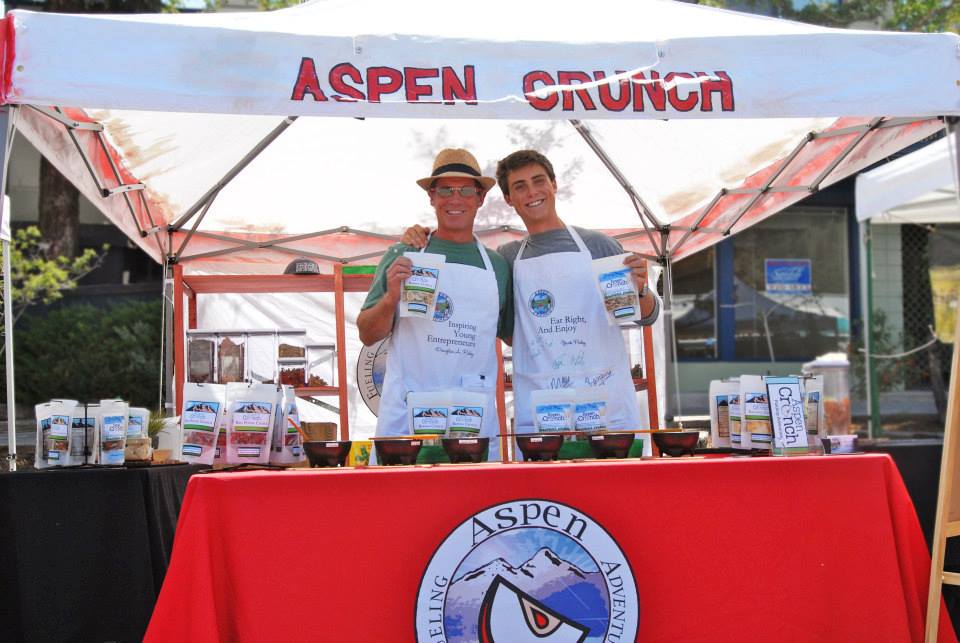Jack Paley has had a truly hands-on business education. In high school he founded a company called Aspen Crunch, a dehydrated food company that makes healthy snack foods out of local ingredients. Now a student at the University of North Carolina Kenan-Flagler Business School, he goes back home to Aspen, Colorado every summer to work for himself.
Five years ago, Paley attended a summer entrepreneurial program at Babson College. Inspired, he returned home to Aspen and, with the help of his father and grandfather, put together a business plan and launched the company.
Aspen Crunch primarily sells its products at the Aspen Saturday Market, a summertime, open-air farmers market where the snacks have steadily gained in popularity over the past five years. Each week’s tallies are different — the vagaries of farmers market trade — but Paley averages sales of approximately 300 bags a week, a figure that has risen every summer.
Starting and running Aspen Crunch piqued his interest in business, and business school introduced him to other possible futures. Now, as he approaches his last year of college, Paley is figuring out what he wants to do after graduation.
FULL-TIME STUDENT AND BUSINESS OWNER
“What drew me to UNC initially was the amazing campus and the entrepreneurial programs there,” Paley says. “Kenan-Flagler was a no-brainer for me. The education I’ve been able to get has been amazing.”
Paley says he was offered “assured admission” to UNC Kenan-Flagler’s business program, and not having to worry about whether he would get in as junior was a big part of why he picked UNC. Once there, he jumped right into the campus entrepreneurial scene, helping to co-found a group called Carolina Think, where students could learn more about entrepreneurship.
Going to school in one state and running a business in another worked out surprisingly well, he says, largely because the Aspen Saturday Market is only open during the summer.
“The Aspen Saturday Market ends roughly around October 15, so once that dies down, the main sales channel is through e-commerce,” Paley says. “So I build a sizeable inventory — something I can expect to last between August and when I come back for break in November and December.”
USING ASPEN CRUNCH TO EDUCATE
Working during the summer has allowed Paley to take what he learns in business school and apply it to an actual business. Since starting college, he’s taken several steps to effectively brand Aspen Crunch. Notably, he’s defined two main missions.
The first is to educate customers about nutrition. To do this, he published a magazine on the Aspen Crunch website that goes into detail about the ingredients used in each of Aspen Crunch’s signature products and their nutritional value. It’s meant to be an educational guide, Paley says; there’s even a glossary of nutrition-related words.












Questions about this article? Email us or leave a comment below.